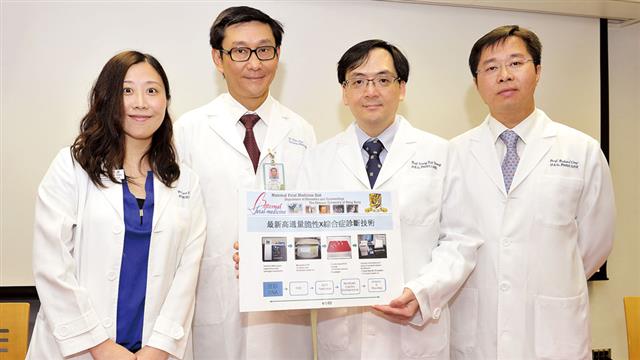Fragile X syndrome, affecting one in 4,000 to 10,000 males, is one of the most common causes of congenital mental retardation. Males inherit the abnormal gene from their carrier-mothers. To help doctors identify women with this hidden genetic problem, the Department of Obstetrics and Gynaecology has launched the territory’s first Fragile X carrier screening by introducing the new Fragile X PCR technology.
About one in 250–1,000 females are asymptomatic carriers of the defected (pre-mutation) FMR1 gene located in the X chromosome, in which there is an increased number of unstable CGG trinucleotide repeats. Once this pre-mutation is transmitted to a male baby, there is a significant risk that the repeats will further expand to beyond 200 times (full-mutation), leading to mental disability and autism. Female carriers are also at risk of pre-mature menopause. Carrier screening may assist prenatal diagnosis of abnormal fetuses as well as assessment of women’s health.
Although the traditional diagnostic method of Fragile X syndrome is accurate in counting the number of CGG repeats, it is labour intensive and time-consuming.The Fragile X PCR is not only capable of counting the CGG repeats up to 900 times, it is also a high throughput method that can produce results after one day. The department has recently validated the Fragile X PCR method on 14 full-mutation cases, 20 pre-mutation cases, and 75 normal controls with 100% accuracy.
For details, please click here.



